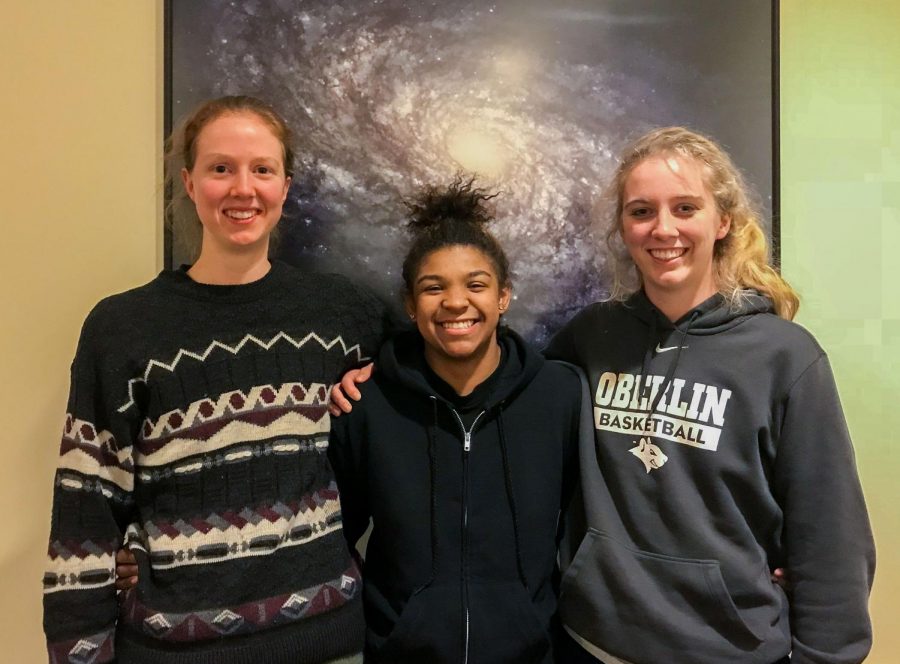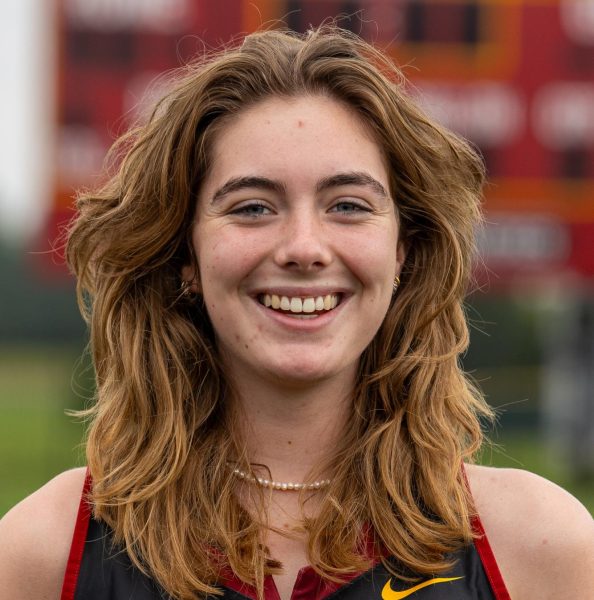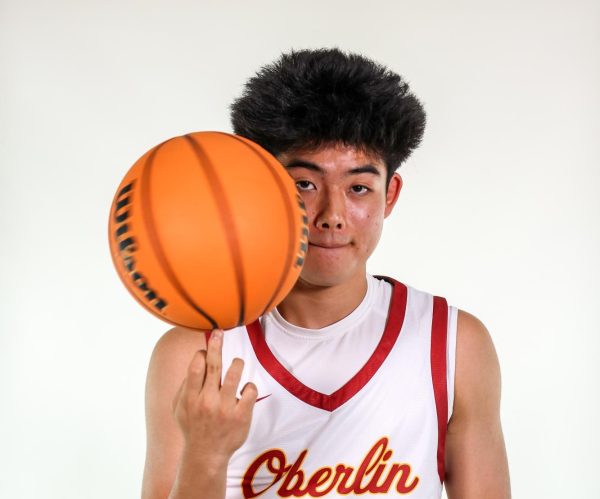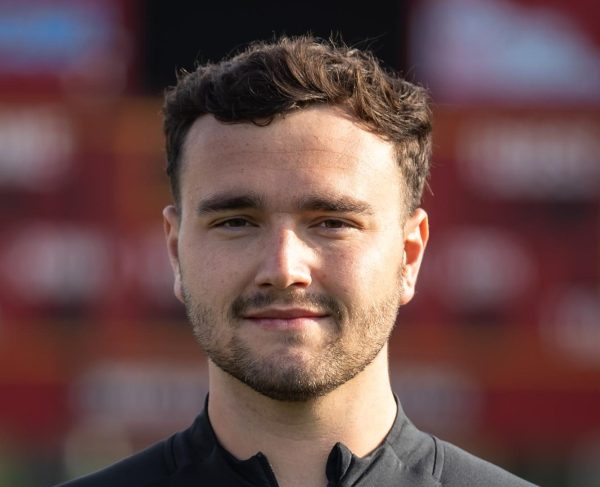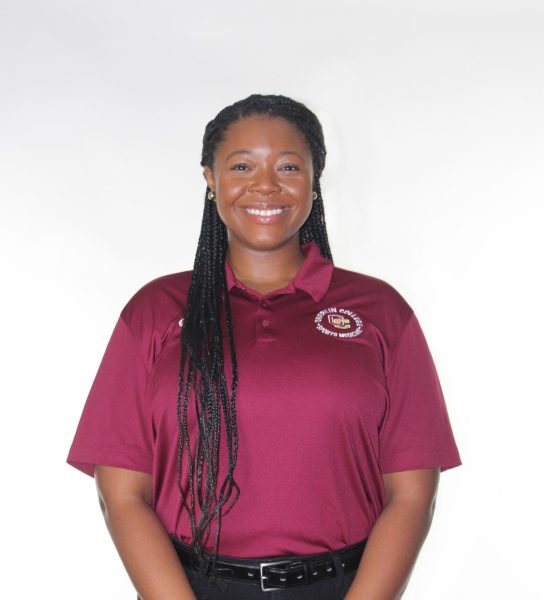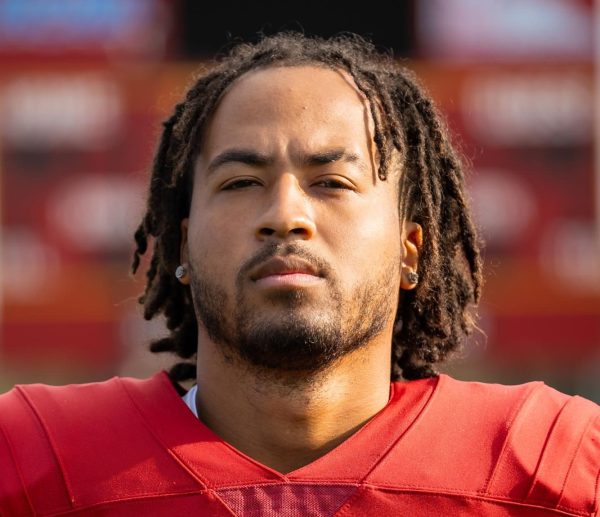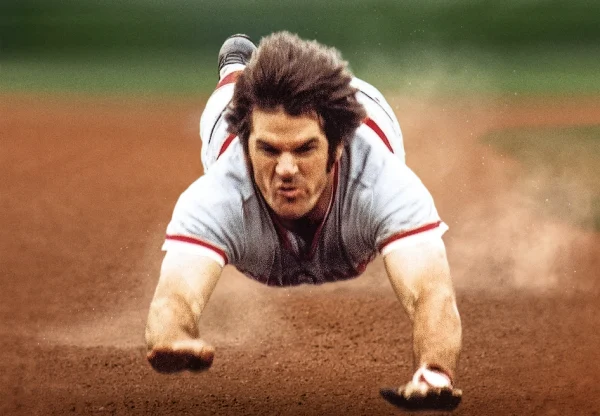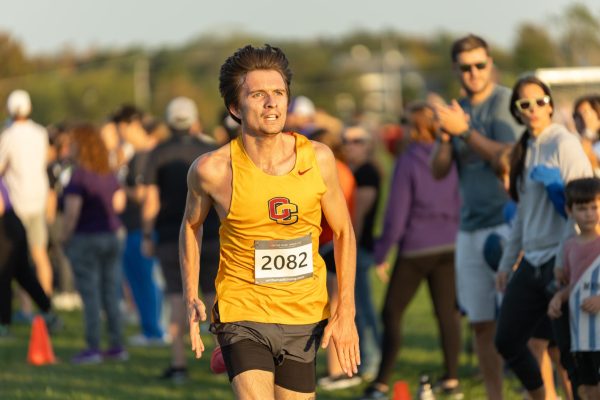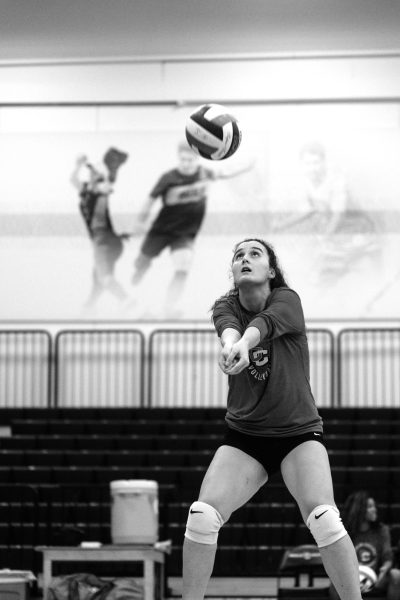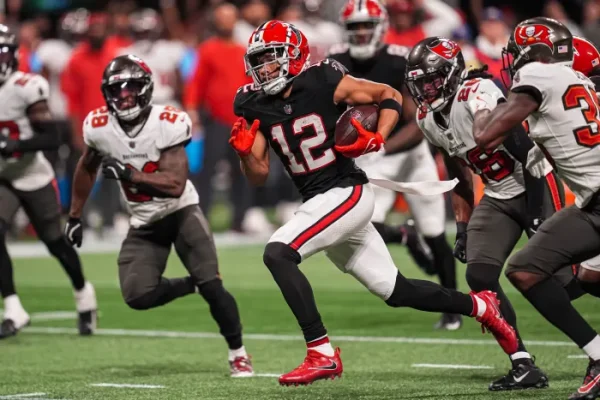In The Locker Room with Anna Moore, Tyler Parlor, and Abby Andrews, Women’s Basketball Seniors
From left: Anna Moore, Tyler Parlor, and Abby Andrews.
College seniors Abby Andrews, Anna Moore, and Tyler Parlor helped the women’s basketball team earn their first North Coast Athletic Conference title and NCAA Tournament appearance in school history this winter. All three have contributed extensively to the team’s success throughout their four years.
This interview has been edited for length and clarity.
This was the most successful season for any women’s basketball team in school history. What made you so successful, aside from the obvious talent you all had as a whole?
Tyler Parlor: I think we really, as a team, were dedicated to the process. People were in the gym on their own, working, trying to get better, learning, growing. We were very dedicated to our end goal, which was to win a championship. We knew the potential that we had, and we knew how devastating it would be if we didn’t live up to that potential. This was the year to get it done. We had great leaders on the team throughout — not just us. Our junior class has great leaders, but even within the sophomore and first-year classes, everybody is very responsible. It was a total team effort — everybody just deciding that that was what we wanted to do.
Your head coach, Kerry Jenkins, always talks about the difference between believing that you believe that you can win, and actually believing you can win.
Anna Moore: I’ve heard that before — we all have. I do agree with Tye and with Coach that mentality is really important, and that this season, it was really impressive that everybody stayed engaged and focused on our long-term goal for the entire season. We know that the energy of each individual person affects the energy of everybody else around them, and it’s wonderful to be a part of a team this year where each person was contributing productive, positive energy — then to be a part of a larger Oberlin community that shared their energy with us.
The women’s programs are on the rise at Oberlin. What do you have to say about the recognition female athletes at Oberlin are earning for themselves? How do you hope this progresses in the future?
Abby Andrews: I think that one of the reasons why we’ve been so successful and track [and field] has been so successful in particular is the focus on individual development that happens in both of those. Track is an individual sport, so of course you’re getting the individual development, and so the coaches are always trying to help you with your technique, and I think that’s something that is sort of unique for us as a team sport. Our coach does that as well. I think that’s what helped us this year a lot, and I think that helps teams be successful. As for recognition, I think it’s really cool because Oberlin is such a liberal place and has so much feminism and our women’s sports are doing so well.
TP: I think it’s cool, just kind of going along with what Oberlin is and what it stands for — the history of Oberlin with women and [people of color] for that matter. [Our programs] have strong, confident athletes who believe that they can get it done and go out there and do it. It’s very inspirational. I’m really proud to be a part of this senior class [across all sports]. We have some really great athletes. I hope that historically we’ve started something at Oberlin and classes behind us will recruit strong, powerful, confident athletes because that also works to shape the mindset on campus. It’s kind of like a ripple effect.
Jenkins was named the NCAC Coach of the Year for the second time. What has Coach Jenkins done for the program? How has he influenced you as student-athletes?
AA: He’s helped me a lot in aspects that aren’t just basketball-related but are through basketball. He’s made me a much more confident player, which led to me being a much more confident leader on and off the court. I literally will sit in his office for five hours at a time just talking to him. It’s really cool that we’re from such different backgrounds — he’s a male, I’m female, and he’s Black, I’m white — yet somehow he has taught me so much about my own privilege, basketball, leadership, and life after basketball. It’s really cool that he’s able to have that relationship with people on the team.
AM: For the program, he’s always had very high expectations, and with this being his 10th year, he has persisted and continued to try to find creative, new ways of coaching. In my four years of being here, I have seen him grow as a coach in ways that I’ve found astounding — just leading by example and being a model for us.
TP: I think the most significant role that he played in my life for four years here is definitely off the court. He’s really taught me life lessons and made me grow in ways I would not have had he not forced me to. He very much made me come face-to-face with things. He’d say, “You can either back down, or you can break this wall down. That’s the choice you have.” He always forced me to rise to that challenge, so I’m very appreciative of him for that.
What do you hope the younger team members take away from this season and from you three as leaders? What kind of legacy do you hope you will leave behind?
TP: A winning legacy. I told them there’s no turning back. We’re champions now. I hope that we taught them how to be decent people, great teammates, and strong leaders. I hope that we taught them how to be committed to the game, how to put personal needs to the side, and do what needs to be done for the greater good for the team to succeed. It’s a team sport; it’s not an individual sport. While, yes, you may be able to fit in different roles, what role does the team need you to fit in? And do you care enough about it to put yourself in that role? I just hope we left a legacy where people do care enough about that. Our team was so different our first year from where it is now. I’m very proud of not only the way we’ve turned the program on the court, [but also] off the court and the community we’ve helped to build. I hope that lasts and it never goes back to anything but where it is now, and keeps going up.
What is the most important lesson you’ve learned throughout your careers?
TP: I think the most important lesson I learned about myself is that I can. I can do whatever I decide to put my mind to. The only thing in my way is me. The only person who can stop me is me. I don’t need confirmation from outside people or even people who I may want confirmation from. If you just believe in yourself, that’s all you need. I really took that lesson from my four years here. I believe in myself. I can get it done.
AA: Along a similar line, I’ve learned how to be confident in myself, which is something I just never had before college. That’s a really important lesson.
AM: I was thinking, for me personally, that things I used to think were impossible can actually be possible. I’d say the most important lesson I’ve learned is the importance of mentality — individual mentality and group mentality.


